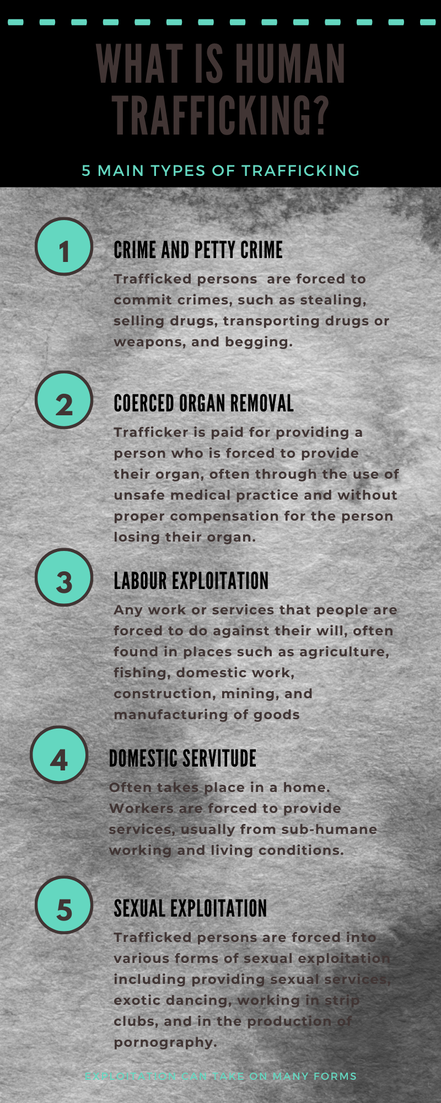Know the Signs
Human trafficking can happen to anyone at any age. It is important to know the signs of trafficking so we can offer support to those who may be experiencing it. Below is a list of possible signs that someone is being trafficked. If someone shows a few of these signs, it does not necessarily mean that they are being trafficked but may lead us to have conversations with them to better understand what is going on
|
PHYSICAL SIGNS:
|
Warning Signs in a Young Person/Friend
When a young person is experiencing trafficking or exploitation, they may exhibit some signs that may indicate their situation. It is important for us to know these signs so we can look out for our friends, family, and students. Below is a list of some signs that may indicate a young person is being trafficking or beginning to be groomed by a trafficker. They do not necessarily mean that the person is certainly being trafficked. But, if we notice many of these signs in one of our friends, family members, or students, it may be helpful to have a conversation with them about these changes.
- All-consuming relationship with a new friend or significant other
- Unexplained access to money or designer items
- Sudden interest in being glamorous/sexy
- Abnormally evasive about relationships, people, and activities
- Quick decline in relationship with family and usual friends
- Sudden loss of trust in authority figures
- Changes in social media posts (more sexual in nature, glorifying crime, showing off money/designer items)
- Cell phone records showing frequent calls to hotels/motels/strip clubs/parlours/unknown numbers
- Regularly having hotel items (key cards/toiletries/pamphlets)
- Use of a secondary cell phone
- Showing signs of physical abuse (bruises, burns, injuries)
- New tattoos or other possessive brandings
- Regularly skipping school or other usual activities
- Away from home at odd times or for extended periods of time with no explanation
- Uncharacteristic spike in anxiety, aggression, hostility
- Declining physical/mental health
Who is Trafficked?
Anyone could be exploited through the sex industry, but there are some communities that are at a much higher risk.
- Mostly women and girls
- Youth experiencing homelessness and marginalized youth
- Youth may be targeted who struggle with: low self-esteem, bullying, discrimination, poverty, abuse, and/or isolation
- Indigenous peoples
- LGBTQI2S+
- People who struggle with addiction, mental health issues and developmental disabilities
- Those whose first language is not English
Online Exploitation
Traffickers are exploiting individuals not only in person, but online too. Listed below are some possible signs of online exploitation.
Changes in Online Habits:
Changes in Online Habits:
- More or less time spent online than usual.
- Become secretive about or try to hide what they are doing online or who they are interacting with.
- May close themselves in the room or change screens when someone else enters the room.
- Increase in online contacts.
- May seem distant, upset or irritable.
- Become angry or agitated.
- Seems to withdraw from others.
- May avoid being away from their device or become uncomfortable when someone else is in possession of their device.

